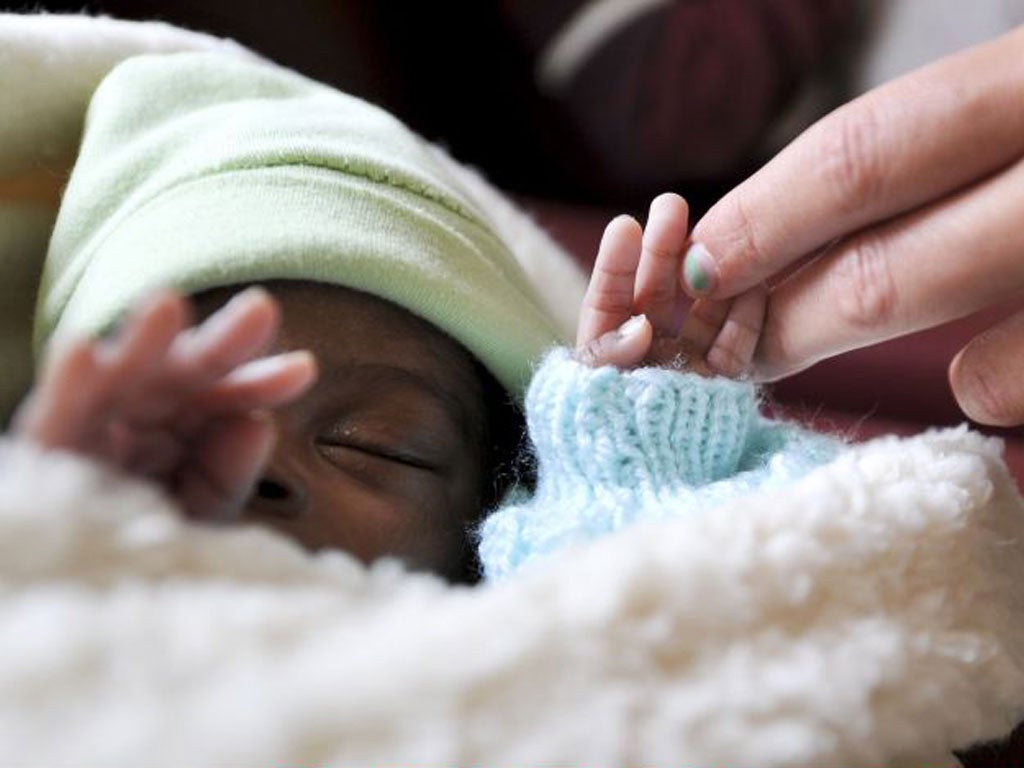Negligence by maternity staff has cost NHS £3.1bn over 10 years

Your support helps us to tell the story
From reproductive rights to climate change to Big Tech, The Independent is on the ground when the story is developing. Whether it's investigating the financials of Elon Musk's pro-Trump PAC or producing our latest documentary, 'The A Word', which shines a light on the American women fighting for reproductive rights, we know how important it is to parse out the facts from the messaging.
At such a critical moment in US history, we need reporters on the ground. Your donation allows us to keep sending journalists to speak to both sides of the story.
The Independent is trusted by Americans across the entire political spectrum. And unlike many other quality news outlets, we choose not to lock Americans out of our reporting and analysis with paywalls. We believe quality journalism should be available to everyone, paid for by those who can afford it.
Your support makes all the difference.Botched care in pregnancy and childbirth has led to more than 5,000 successful negligence claims against the maternity services over the last decade – costing the NHS £3.1bn.
The sums paid out would be enough to build a dozen new obstetric units and hire thousands of extra consultants and midwives which could make childbirth safer.
The scandal of the maternity care payouts is revealed today in figures from the NHS Litigation Authority (NHSLA) which show the current system is unfair, inefficient and a gross waste of NHS resources. It reflects the growing burden of medical negligence on the NHS which is diverting scarce resources from patient care.
Only cases where negligence can be proved get compensation – an average of £600,000 for each successful claimant – and almost 20 per cent of the money goes into lawyers’ pockets.
In the one in 10 worst-affected cases – 542 claims – the average payout was £2.4m. These involved babies born brain damaged, causing cerebral palsy and requiring 24-hour care for life.
Over the past decade, £627m has been paid out on maternity claims, of which £112 million (18 per cent) went on fees to lawyers, the NHSLA said. But with payouts continuing throughout the children’s lives, the total cost to the NHS of claims settled over the past 10 years will reach £3.1 billion.
However, babies who suffered similar catastrophic injury at birth as a result of an accident, or where negligence could not be proved, got nothing.
Ten years ago, the Government’s former chief medical officer, Sir Liam Donaldson, attempted to introduce a “no fault” scheme so that all babies injured at birth could be compensated, but his efforts came to nothing. Experts said yesterday that hiring more consultants and providing 24-hour consultant care on obstetric units could reduce the risks for all babies and save the NHS costs by cutting the compensation bill.
The NHSLA report found that in the 5,087 cases that resulted in claims, junior doctors and inexperienced midwives were involved in the management of labour without adequate senior clinician assistance.
“Having more senior staff available during labour, together with a better understanding among junior staff about when to ask them for help, may prevent harm,” it said.
NHSLA chief executive Catherine Dixon said: “Having a baby while under the care of NHS doctors and midwives remains very safe. Out of 5.5 million births in England during the decade covered by the report, about one in a thousand result in a legal claim against the NHS. However, because maternity claims are so serious as they involve harm to mothers and their babies, it’s vital that we learn and share lessons from them so that professionals can improve their clinical practice in the future and prevent harm.”
David Richmond, vice-president of the Royal College of Obstetricians and Gynaecologists, said: “[We have made] a strong case for the NHS to move to a consultant-delivered service so that trainee doctors receive adequate support and women have access to qualified specialists throughout the day and night.”
Health Minister Dr Dan Poulter said: “The NHS remains one of the safest places in the world to have a baby, but no matter how well our midwives and doctors look after women giving birth, bad things still sometimes happen to a very small number of mothers and babies.”
Join our commenting forum
Join thought-provoking conversations, follow other Independent readers and see their replies
Comments